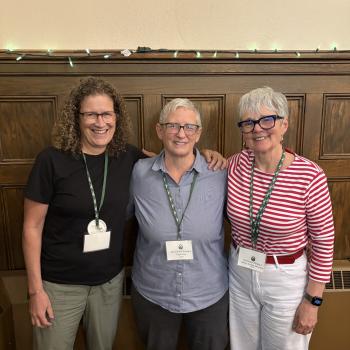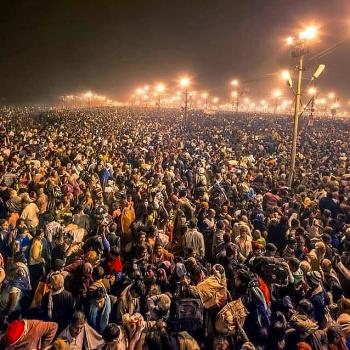Last week,the Supreme Court delivered a historic affirmation of religious liberty with its unanimous decision in Hosanna-Tabor Evangelical Lutheran Church and School v. EEOC. The case involved a teacher (Cheryl Perich) at a Lutheran church's school in Michigan, who was dismissed when she threatened to sue the school for a purported violation of the Americans with Disabilities Act. In its decision in favor of the church, the court affirmed the long-established principle that the government cannot dictate ministerial employment practices to religious organizations, nor can ministerial employees sue religious organizations for discrimination.
You can learn more about the case from my October editorial in USA Today, but reactions to the decision by religious conservatives and secular liberals have been fascinating to observe. The defenders of religious liberty have rejoiced at a verdict that was, in the words of University of St. Thomas law professor Michael Stokes Paulsen, "absolutely, completely right." Much-deserved congratulations have gone especially to the non-profit, non-sectarian Becket Fund for Religious Liberty, who led the case for the church. For advocates of religious liberty, this is a rare moment of unalloyed celebration.
Secularists, such as the ACLU and the lawyers for the Department of Justice, got taken to the woodshed here, their position utterly repudiated by the court. All they seemed to be able to muster in reaction to the news were feeble assertions that Hosanna-Tabor was "narrow" in its implications.
But a more interesting refrain popped up in liberal critics' reactions to Hosanna-Tabor. This refrain was, in a nutshell, "I guess Justices Kagan and Sotomayor didn't get the memo about President Obama's 'war on religion!'" "War on religion" is a phrase employed routinely by Texas governor Rick Perry and other Republicans regarding the Obama administration's perceived hostility to religious free exercise. If the Obama administration really had malevolent intentions toward faith, left-wing writers said, wouldn't they have enlisted the help of their Supreme Court nominees? David Sessions of The Daily Beast hoped that Hosanna-Tabor would end the right's "hysteria over religious liberty."
In light of Hosanna-Tabor, is there really any reason to fear a secularist "war on religion"? Certainly that term is polemical, but is it ridiculous to think that religious liberty remains at risk in America? It depends how you look at the issue. Obviously, Hosanna-Tabor was a major victory for protecting the free exercise of religion. Religious conservatives also need to be cautious about the use of terms like "persecution" and "war on religion" in light of massive, violent oppression that is happening to Christians and other religious minorities around the world in places like Egypt and China.
I would disagree, however, with Sessions and others who point to Hosanna-Tabor and say that it proves all is well with religious liberty here. Concerns about religious liberty in America are not hysterical. To demonstrate this, all you have to do is look at the radical position taken by the Obama Department of Justice in Hosanna-Tabor. Normally, lawyers before the Supreme Court lean heavily on precedent, but the DOJ in Hosanna-Tabor argued for a sharp departure from precedent. The DOJ recommended that the court abandon the notion of a "ministerial exception" entirely, or that they restrict it to employees whose duties are "exclusively religious." Under that rule, Cheryl Perich would not have counted as a ministerial employee, even though she was called to her position by the congregation, she prayed daily with students, and she taught religion, among other subjects. Indeed, the DOJ was setting a standard almost no religious employee would meet—even pastors and rabbis have to take care of mundane tasks like paying the bills!
DOJ lawyers may have hoped that Hosanna-Tabor would become a wedge case, establishing a new precedent that would allow the government eventually to require faith congregations to comply with contemporary norms of fairness with regard to issues such as gender and sexual behavior. That's why such a stunning array of religions, from evangelicals to Hare Krishnas, filed amicus briefs for the church.
Deep concern about this case was not hysteria. Had the court embraced the DOJ's position, it would have represented a major attack on religious groups' freedom from government interference. Nine justices stood in the way of this happening, and thankfully, the system worked. Even President Obama's appointed judges (much to their credit) saw the wildly overextended nature of the DOJ's position. They realized that a decision against the Hosanna-Tabor church could have helped turn "free exercise of religion" into "free exercise of religion, pending government approval."
1/18/2012 5:00:00 AM





